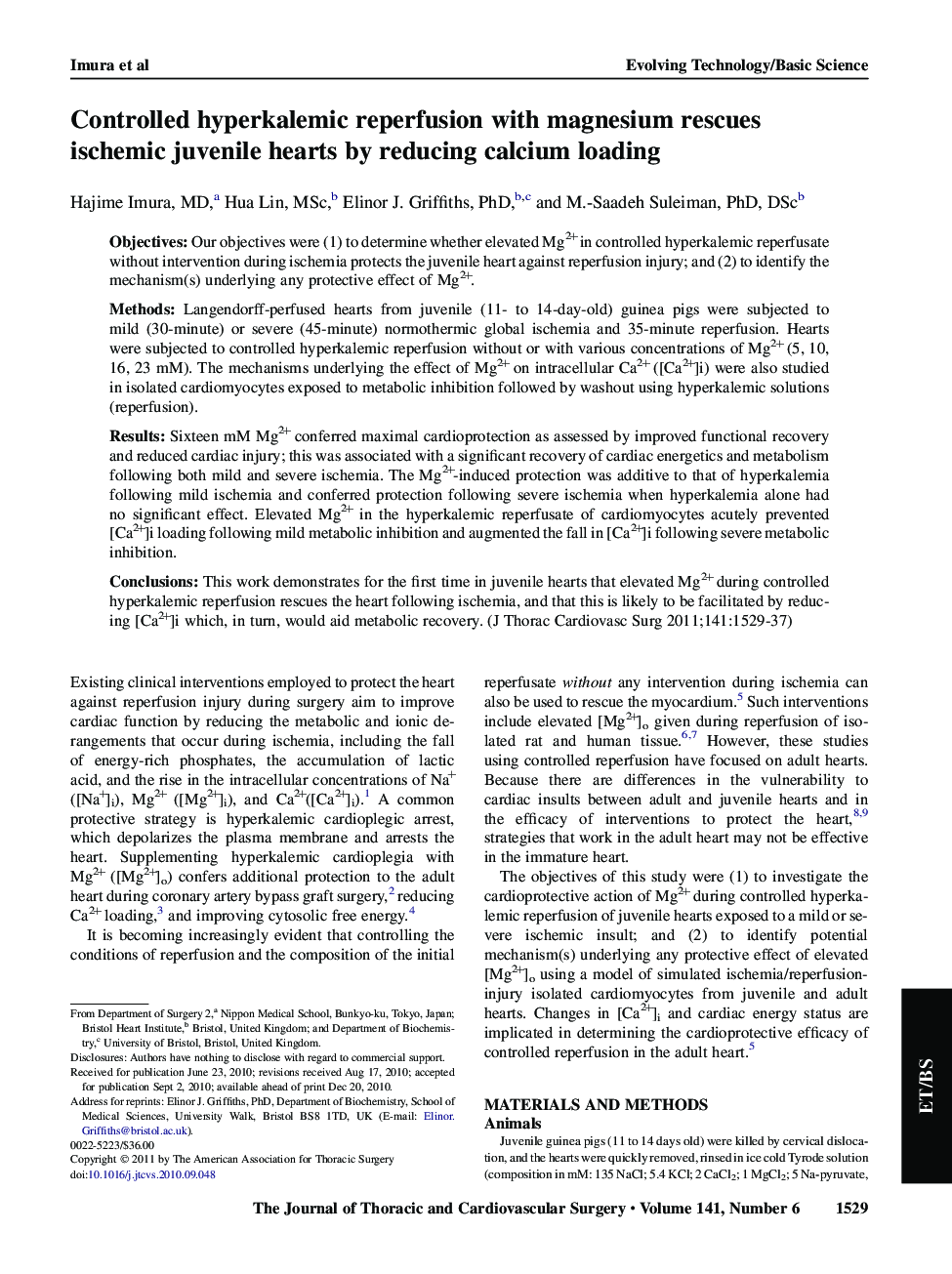| Article ID | Journal | Published Year | Pages | File Type |
|---|---|---|---|---|
| 2982976 | The Journal of Thoracic and Cardiovascular Surgery | 2011 | 9 Pages |
ObjectivesOur objectives were (1) to determine whether elevated Mg2+ in controlled hyperkalemic reperfusate without intervention during ischemia protects the juvenile heart against reperfusion injury; and (2) to identify the mechanism(s) underlying any protective effect of Mg2+.MethodsLangendorff-perfused hearts from juvenile (11- to 14-day-old) guinea pigs were subjected to mild (30-minute) or severe (45-minute) normothermic global ischemia and 35-minute reperfusion. Hearts were subjected to controlled hyperkalemic reperfusion without or with various concentrations of Mg2+ (5, 10, 16, 23 mM). The mechanisms underlying the effect of Mg2+ on intracellular Ca2+ ([Ca2+]i) were also studied in isolated cardiomyocytes exposed to metabolic inhibition followed by washout using hyperkalemic solutions (reperfusion).ResultsSixteen mM Mg2+ conferred maximal cardioprotection as assessed by improved functional recovery and reduced cardiac injury; this was associated with a significant recovery of cardiac energetics and metabolism following both mild and severe ischemia. The Mg2+-induced protection was additive to that of hyperkalemia following mild ischemia and conferred protection following severe ischemia when hyperkalemia alone had no significant effect. Elevated Mg2+ in the hyperkalemic reperfusate of cardiomyocytes acutely prevented [Ca2+]i loading following mild metabolic inhibition and augmented the fall in [Ca2+]i following severe metabolic inhibition.ConclusionsThis work demonstrates for the first time in juvenile hearts that elevated Mg2+ during controlled hyperkalemic reperfusion rescues the heart following ischemia, and that this is likely to be facilitated by reducing [Ca2+]i which, in turn, would aid metabolic recovery.
